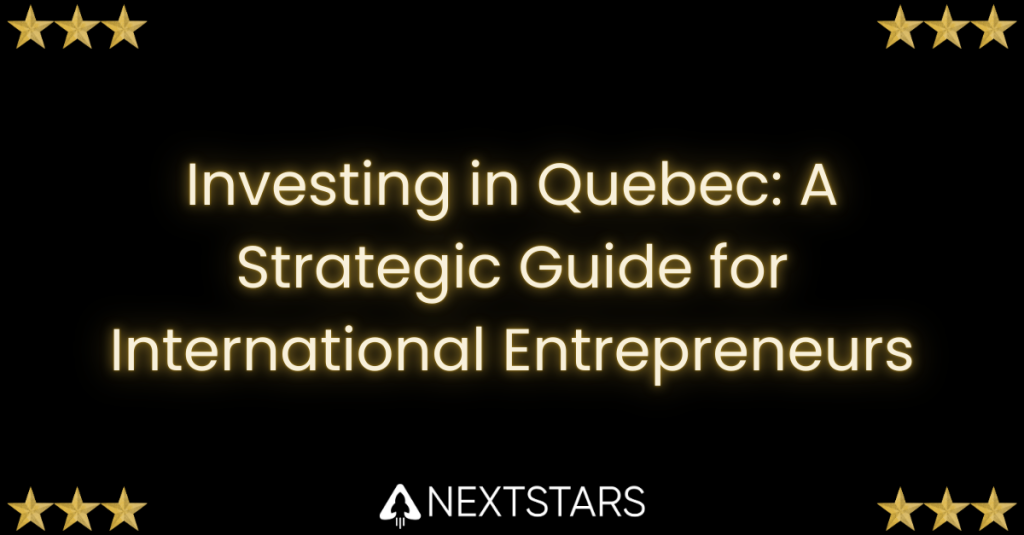Kuwait: The Overlooked Tech Hub
Kuwait’s startup ecosystem is experiencing a remarkable resurgence—climbing from regional afterthought to become the GCC’s third-largest startup market. Startups raised approximately $200 million in 2024, maintaining momentum from previous years, driven by sectors like e-commerce (40% of funding) and fintech innovation. With 99% internet penetration, one of the world’s highest GDP per capita ($33,000+), and government initiatives like the $200 million Al-Dharra Innovation Fund and National Fund for SME Development deploying $2 billion, Kuwait offers compelling opportunities for founders. The ecosystem’s maturity is evidenced by landmark exits—Talabat’s $2 billion acquisition by Delivery Hero and Carriage’s $100 million exit—while emerging players like Floward, Tap Payments, and Boutiqaat demonstrate sustained innovation capacity. Kuwait’s combination of capital availability, sophisticated consumers, and strategic GCC positioning makes it an increasingly attractive destination for entrepreneurs building scalable technology businesses.
A Gateway Positioning: Kuwait’s Strategic Advantages
Kuwait occupies a unique position in the GCC startup landscape, combining old wealth with new ambitions in ways often overlooked by international observers.
Geographic and Economic Fundamentals
With a population of 4.5+ million and 99% internet penetration, Kuwait provides one of the world’s most digitally connected markets. The country’s characteristics offer distinct advantages:
Wealth concentration: GDP per capita of $33,000+ creates premium consumer base
Regional connectivity: Central location between Saudi Arabia and Iraq
Historical trading hub: Centuries-old merchant culture adapting to digital age
Capital abundance: $750+ billion in sovereign wealth seeking diversification
Sophisticated Consumer Market
Kuwait’s market dynamics create unique opportunities:
- Highest social media usage globally: 99% of internet users on social platforms
- E-commerce penetration: 75% of population shops online regularly
- Early adopter culture: Quickest adoption rates for new technologies in MENA
- Brand consciousness: Premium products and services find ready market
Capital and Liquidity Advantages
Kuwait offers unmatched capital depth:
- Kuwait Investment Authority managing $750+ billion
- Private wealth estimated at $500+ billion
- Highest per capita wealth in GCC after Qatar
- Family offices increasingly interested in tech investments
- Stock market liquidity seeking alternative investments
Cultural and Regulatory Evolution
Kuwait demonstrates progressive shifts despite conservative reputation:
- New foreign investment law allowing 100% ownership in certain sectors
- Bankruptcy law protecting entrepreneurs (2020)
- Growing acceptance of entrepreneurship as career path
- Women comprising 35% of entrepreneurs
- Parliamentary democracy creating more transparent governance
This combination of wealth, digital sophistication, and evolving mindsets positions Kuwait as an underestimated force in regional tech innovation.
Government Support and Policy Infrastructure
Kuwait’s government has intensified economic diversification efforts, recognizing the urgent need to reduce oil dependence.
Kuwait Vision 2035 (New Kuwait)
The ambitious New Kuwait Vision 2035 targets fundamental economic transformation:
- Transform Kuwait into regional financial and commercial hub
- Increase private sector contribution to 65% of GDP
- Create 450,000 new jobs in non-oil sectors
- Achieve top 35 global competitiveness ranking
- Build knowledge-based economy leveraging human capital
National Fund for SME Development
The National Fund, established with $2 billion capital, has become the ecosystem’s cornerstone:
- $500 million deployed in direct startup investments
- 80% financing for qualified projects up to $1.5 million
- Portfolio of 1,500+ SMEs and startups
- 10,000+ jobs created through investments
- Focus on technology and innovation ventures
Kuwait Investment Authority (KIA) Initiatives
The sovereign wealth fund’s new venture initiatives include:
- $200 million Al-Dharra Innovation Fund for tech investments
- Co-investment programs with international VCs
- $500 million allocated for venture capital over 5 years
- Partnerships with Silicon Valley funds
- Support for Kuwaiti startups’ international expansion
Regulatory Improvements
Recent policy reforms supporting startups:
- Electronic signature law enabling digital transactions (2020)
- Data protection law aligned with GDPR standards
- Competition law preventing monopolistic practices
- SME quota: 10% of government contracts reserved for SMEs
- Startup visa program under development
Infrastructure Development
Government-backed innovation infrastructure:
- Kuwait National Innovation Campus: 100,000 sq.m. under construction
- Abdullah Al-Salem Cultural Centre: Including innovation labs
- Sabah Al-Ahmad Centre for Giftedness: Tech talent development
- Kuwait University Research Park: Commercialization focus
- Sheikh Jaber Al-Ahmad Cultural Centre: Creative industry hub
The Funding Landscape: Maturing Rapidly
Strong Funding Momentum
Kuwait’s startup funding landscape demonstrates sustained growth and increasing sophistication.
Overall performance:
- $200 million raised in 2024 (estimated)
- 3rd largest startup funding in GCC
- 45 deals completed
- Average deal size increasing 40% year-over-year
- International investor participation growing
Healthy Distribution
Kuwait shows improving funding distribution:
- Top 5 startups account for 55% of funding (better than regional average)
- Series A rounds becoming regular (10+ annually)
- Seed stage well-served by multiple programs
- Series B and beyond emerging (3-5 annually)
Sector Breakdown
E-commerce and Marketplaces dominating:
- 40% of total funding ($80M)
- Floward, Boutiqaat, Dabdoob leading
- Social commerce innovation
- Quick commerce adoption
FinTech substantial and growing:
- 30% of funding ($60M)
- Tap Payments processing $2+ billion annually
- Digital banking initiatives
- Islamic finance innovation
- Cryptocurrency adoption (despite regulatory uncertainty)
FoodTech and Delivery:
- 15% of funding building on Talabat legacy
- Cloud kitchen innovations
- Specialized delivery verticals
- Restaurant management platforms
Emerging sectors:
- HealthTech: Telemedicine adoption post-COVID
- EdTech: Serving diverse education needs
- PropTech: Real estate digitization
- Content/Gaming: Leveraging creative talent
Active Investors
Local venture capital firms:
- Arzan VC: $75 million fund, most active local investor
- Cedar Mundi Ventures: Focus on MENA expansion
- Impulse International: Corporate venture arm
- Kuwait Venture Capital Company: Government-backed
- Al-Dharra Innovation Fund: $200 million firepower
Family offices entering tech:
- Alshaya Group: Retail giant’s venture arm
- Al-Kharafi Group: Diversification into tech
- Alghanim Industries: Strategic tech investments
- Multiple next-generation family office initiatives
International investors in Kuwait:
- STV (Saudi): Active in Kuwaiti deals
- BECO Capital: Regular Kuwait investments
- Wamda Capital: Long-term Kuwait presence
- Global Founders Capital: Backed multiple startups
- Faith Capital: Expanding Kuwait portfolio
Landmark Exits Validating Ecosystem
Game-changing exits:
- Talabat: $2 billion acquisition by Delivery Hero (largest MENA exit)
- Carriage: $100 million acquisition by Delivery Hero
- JustClean: Regional expansion and acquisition interest
- Cofe: Franchise model scaling internationally
These exits created:
- Wealth recycling into new ventures
- Experienced entrepreneurs becoming angels
- International validation of Kuwaiti execution
- LP confidence in Kuwait-focused funds
Success Stories: Kuwaiti Startups at Scale
Talabat: The Exit That Defined a Generation
Founded in 2004, Talabat became the Middle East’s most successful startup exit, fundamentally changing Kuwait’s tech landscape.
The journey:
- Started by Kuwaiti entrepreneurs during university
- Scaled to 9 countries across MENA
- $2 billion acquisition by Delivery Hero (2015/2016)
- Created 100+ millionaires among employees
Ecosystem impact:
- Inspired entire generation of entrepreneurs
- Alumni founded 20+ new startups
- Proved Kuwaiti startups could achieve global scale
- Attracted international attention to Kuwait
Tap Payments: Regional FinTech Leader
Founded in 2013, Tap Payments has become the region’s leading payment processor, enabling digital commerce across MENA.
The platform:
- Processing $2+ billion annually
- Serving 100,000+ merchants
- Operating in 15+ countries
- 1,000+ employees across region
Growth metrics:
- Raised $50+ million to date
- 200% year-over-year growth
- EBITDA positive since 2019
- Valued at $200+ million
Strategic positioning:
- First mover in multiple markets
- Government digital payment partner
- API-first architecture
- Cross-border payment innovation
Floward: Redefining Gifting
Floward represents new-generation Kuwaiti startups building regional champions from inception.
The model:
- Online flowers and gifts marketplace
- Operating in 36 cities across 9 countries
- Same-day delivery capability
- Partnered with 800+ local florists
Traction:
- Raised $35+ million from prominent VCs
- 500% growth during COVID
- Unit economics positive
- Celebrity endorsements driving brand
Boutiqaat: Beauty E-Commerce Pioneer
Boutiqaat transformed beauty retail in the GCC before its strategic pivot.
The story:
- Founded 2015 targeting beauty enthusiasts
- Raised $45+ million from regional investors
- Scaled to 1 million+ users
- Strategic challenges led to restructuring
- Lessons learned strengthening ecosystem
Other Notable Players
JustClean:
- Laundry and cleaning services platform
- 100,000+ active users
- Expansion to UAE and Saudi
- Series A from Faith Capital
Cofe:
- Coffee ordering and delivery
- Franchise model scaling globally
- Operations in 6 countries
- Profitable since year 2
Dabdoob:
- Kids’ e-commerce platform
- Market leader in segment
- Regional expansion underway
- Backed by Arzan VC
Challenges: Breaking Through Barriers
Bureaucratic Friction
Government efficiency gaps:
- Complex licensing despite improvements
- Slow decision-making in government contracts
- Multiple approvals required across agencies
- Paper-based processes still prevalent
- Wasta (connections) culture creating unfair advantages
Reform efforts underway:
- Digital transformation initiatives
- Single window for business setup
- E-government services expanding
- Anti-corruption measures strengthening
Market Fragmentation
Population dynamics challenges:
- 70% expatriate population creating transient customer base
- Multiple segments: Kuwaitis, Arabs, South Asians, Westerners
- Different purchasing behaviors across segments
- Language barriers (Arabic, English, Hindi, etc.)
- Trust building required for each segment
Strategic approaches:
- Multi-language platforms
- Segment-specific marketing
- Community-based growth
- Trust signals and social proof
Talent Constraints
Human capital challenges:
- Public sector preference: 90% of Kuwaitis work in government
- Wage expectations: High due to public sector salaries
- Technical skills gap: Limited local developer pool
- Risk aversion: Cultural preference for stability
- Brain drain: Top talent moving to Dubai/Europe
Solutions developing:
- Coding bootcamps launching
- University programs adapting
- Remote work acceptance
- Expatriate talent integration
- Diaspora return incentives
Regulatory Uncertainty
Gray areas hindering innovation:
- Cryptocurrency stance unclear
- Data localization requirements ambiguous
- Cross-border payments restrictions
- Content regulations affecting platforms
- Labor law rigidity for startups
Advocacy efforts:
- Startup associations lobbying
- Regulatory sandboxes proposed
- Public-private dialogue improving
- Regional harmonization discussions
Oil Dependency Mindset
Structural challenges:
- Resource curse reducing urgency
- Subsidy culture distorting economics
- Government employment as default
- Limited pressure to innovate
- Comfort zone preventing risk-taking
Mindset shifts needed:
- Celebrating entrepreneurial success
- Education system reform
- Media narrative change
- Role model amplification
The Support Ecosystem: Strengthening Foundations
Incubators and Accelerators
Kuwait National Fund Incubator:
- Flagship national program
- 100+ startups graduated
- 6-month programs
- Up to $50,000 in seed funding
- 85% survival rate after 2 years
Niu Accelerator:
- First private accelerator
- Focus on tech startups
- $25,000 for 7% equity
- 3-month program
- Partnership with 500 Global
Kuwait Business Town:
- 50,000 sq.m. dedicated to SMEs
- 200+ companies housed
- Subsidized rent and services
- Networking and training programs
- Government services on-site
Zain Great Idea:
- Corporate accelerator by telecom giant
- 10 cohorts completed
- $100,000 investment per startup
- Access to Zain’s customer base
- Regional expansion support
Academic Programs:
- Kuwait University Entrepreneurship Center
- AUM Innovation Lab
- GUST Business Incubator
- ACK Startup Program
- Combined 500+ student entrepreneurs annually
University Ecosystem
Kuwait University:
- Sabah Al-Salem Innovation Center
- 2,000+ students in entrepreneurship courses
- Annual startup competition with $200,000 prizes
- Industry collaboration programs
- Research commercialization initiatives
American University of Kuwait (AUK):
- Liberal arts approach to entrepreneurship
- Silicon Valley study tours
- Venture capital course with real investments
- Alumni network in tech
Gulf University for Science and Technology (GUST):
- Business incubator on campus
- Tech-focused programs
- Partnership with Microsoft
- Women entrepreneurship initiatives
Support Organizations
Brilliant Lab:
- Innovation consultancy
- 500+ entrepreneurs trained
- Design thinking workshops
- Corporate innovation programs
- Government advisory services
en.v:
- Social enterprise accelerator
- Focus on sustainability
- 50+ impact startups supported
- UN SDG alignment
- Regional partnerships
Sirdab Lab:
- First co-working space (2014)
- Community of 2,000+ members
- Regular events and meetups
- Demo days with investors
- Maker space with 3D printing
Kuwait Tech Community:
- 5,000+ members online
- Monthly meetups
- Hackathons and competitions
- Job board and resources
- Slack community active
Corporate Innovation
Zain Innovation Campus (ZINC):
- Regional innovation hub
- Partnership with global startups
- 5G testing lab
- IoT development center
- $50 million investment
Boubyan Bank Innovation:
- First digital-only bank Nomo
- Fintech partnerships
- Innovation lab
- Startup banking services
Kuwait Petroleum Innovation:
- $100 million innovation fund
- Energy tech focus
- International partnerships
- Pilot programs with startups
Looking Ahead: Unleashing Potential
Critical Juncture
Kuwait’s startup ecosystem stands at a defining moment in 2025:
Momentum indicators:
- Consistent $200M+ annual funding
- Successful exits creating wealth recycling
- Government commitment with real capital
- Second generation of entrepreneurs emerging
- Regional investors taking Kuwait seriously
Persistent obstacles:
- Bureaucratic culture deeply entrenched
- Oil wealth reducing transformation urgency
- Talent preferring public sector
- Regulatory gaps in emerging tech
- Market fragmentation challenges
What Success Looks Like by 2030
Quantitative targets:
- $500M+ annual startup funding (2.5x current)
- 1,000+ active startups (from 300 today)
- 20+ Series A rounds annually
- 5+ unicorns or near-unicorns
- 50,000 jobs in startup ecosystem
- 10+ exits above $100M
Qualitative transformation:
- Kuwait recognized as GCC’s third hub after UAE/Saudi
- Kuwaiti startups IPO-ing regionally
- International VCs maintaining Kuwait presence
- Diaspora talent returning to build
- Corporates actively acquiring/investing
- Government as sophisticated startup customer
Strategic Imperatives
For government:
- Bureaucracy elimination: Digital-first government services
- Regulatory clarity: Especially crypto, data, cross-border
- Talent transformation: Massive reskilling programs
- Procurement reform: Startups as government vendors
- Success amplification: Celebrate wins internationally
For investors:
- Larger funds: $100M+ vehicles needed
- Growth capital: Bridge Series A-B gap
- Regional networks: Connect portfolio regionally
- Sector expertise: Specialized funds emerging
- Exit planning: Strategic buyer relationships
For corporates:
- Innovation mandates: Every major corporate needs venture arm
- Acquisition appetite: Buy innovation vs. build
- Startup partnerships: Beyond pilots to deployment
- Talent sharing: Secondments and rotations
- Customer role: Become early adopters
For founders:
- Regional thinking: GCC market from day one
- Talent creativity: Remote teams, expatriate integration
- Corporate partnerships: Leverage local giants
- Capital efficiency: Assume longer funding cycles
- Exit optionality: Build acquisition-ready companies
Unique Opportunities
Kuwait presents distinctive advantages often overlooked:
Capital abundance:
- Highest per capita wealth creating patient capital
- Family offices seeking tech exposure
- Government funds deploying aggressively
- Corporate venture emerging
Sophisticated consumers:
- Highest social media usage globally
- Early adopter mentality
- Premium purchasing power
- Brand consciousness
Regional positioning:
- Natural bridge to Iraq (45M population)
- GCC integration benefits
- Less competition than Dubai/Riyadh
- Regulatory arbitrage opportunities
Canada-Kuwait Bridge Potential: The Canada-Kuwait corridor represents an underexploited strategic opportunity for both nations. Canada hosts 30,000+ Kuwaiti students and expatriates, many in tech hubs like Toronto, Vancouver, and Montreal. Both countries share striking parallels: resource-based economies seeking tech diversification, stable governance systems, and multicultural societies. Kuwait’s capital abundance perfectly complements Canada’s technical expertise and mature startup ecosystem. Canadian startups could leverage Kuwait as their gateway to the $3 trillion GCC market, while Kuwaiti startups could access North American talent and markets through Canadian soft-landing programs. Specific opportunities include: AI/ML expertise from Vector Institute and MILA partnering with Kuwait’s sovereign funds, Canadian cleantech solving Kuwait’s sustainability challenges, fintech collaboration leveraging Toronto’s financial center expertise, and bilateral venture funds co-investing in both markets. With Canada’s Startup Visa programand Kuwait’s emerging international partnership initiatives, a formal innovation corridor could create unique value—combining Canadian technical depth with Kuwaiti capital and market access. Early movers establishing this bridge could capture outsized returns in sectors like Islamic fintech, Arabic language AI, sustainable energy, and B2B platforms serving both markets.
Sector opportunities:
- FinTech: Islamic finance innovation
- E-commerce: Social commerce leadership
- Content: Arabic content creation
- FoodTech: Building on delivery success
- B2B: Digitizing traditional trade
The Path Forward
Kuwait possesses fundamental strengths for building a thriving ecosystem:
Capital depth unmatched regionally per capita
Digital sophistication with world-leading connectivity
Proven exits demonstrating possible outcomes
Merchant heritage adapting to digital age
Strategic location often underestimated
The challenge lies in execution and mindset shifts:
Urgency injection: Despite oil wealth comfort
Bureaucracy bypass: Through digital channels
Talent activation: Making entrepreneurship attractive
Regulatory modernization: Enabling not constraining
Regional integration: Leveraging GCC opportunities
For ambitious founders and smart investors, Kuwait offers:
- Less competition than saturated Dubai
- More capital than emerging Oman/Bahrain
- Proven exits showing the path
- Sophisticated consumers for premium products
- Government support with real money
The next 5 years will determine whether Kuwait emerges as the GCC’s third major hub or remains an underperformer relative to potential. The ingredients exist—capital, connectivity, consumers, and increasingly, success stories. What’s needed is acceleration and execution.
The key insight: Kuwait doesn’t need to copy Dubai or Riyadh. Its combination of capital abundance, digital sophistication, and proven entrepreneurial capability can create a distinct model—less hype, more substance; less unicorn chasing, more sustainable businesses; less foreign dependence, more local innovation.
Kuwait’s startup ecosystem in 2025 stands ready to surprise those who’ve written it off. For those paying attention, the opportunity is compelling.
Read our article about the startup ecosystem in Oman here.





